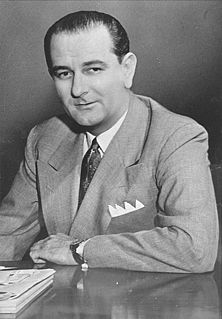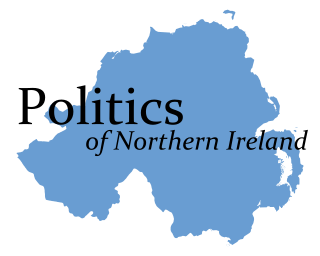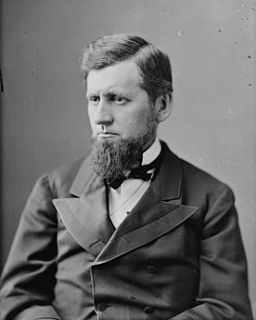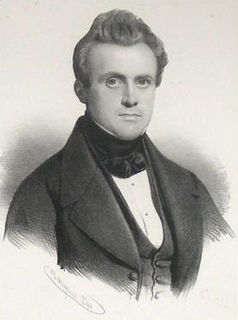Elections to determine the makeup of the legislative bodies on the three levels of administrative division in the Kingdom of Sweden are held once every four years. At the highest level, these elections determine the allocation of seats in the Riksdag, the national legislative body of Sweden. Elections to the 20 county councils (landsting) and 290 municipal assemblies (kommunfullmäktige) – all using roughly the same electoral system – are held concurrently with the legislative elections on the second Sunday in September.

Elections in Antigua and Barbuda take place in the framework of a parliamentary democracy.

The United States Senate elections of 1956 were elections for the United States Senate that coincided with the re-election of President Dwight D. Eisenhower. Although the Democrats gained two seats in regular elections, the Republicans gained back two seats in special elections, leaving the party balance of the chamber remained unchanged.

The United States Senate elections of 1954 was a midterm election in the first term of Dwight D. Eisenhower's presidency. Eisenhower's Republican party lost a net of two seats to the Democratic opposition. This small change was just enough to give Democrats control of the chamber with the support of an Independent who caucused with them.

The United States Senate elections of 1924 were elections for the United States Senate which coincided with the election of Republican President Calvin Coolidge to a full term. The strong economy and Coolidge's popularity helped Republican candidates increase their majority by four, although several interim appointments had worsened their numbers since the 1922 election; as a result, the party achieved a net gain of only one seat since the previous voting cycle.

Elections in Guinea-Bissau take place within the framework of a multi-party democracy and a semi-presidential system. Both the President and the National People's Assembly are directly elected by voters.

Elections in Northern Ireland are held on a regular basis to local councils, the Northern Ireland Assembly, the Parliament of the United Kingdom, and to the European Parliament.

Although the 17th Amendment was not passed until 1913, some states elected their Senators directly before its passage. Oregon pioneered direct election and experimented with different measures over several years until it succeeded in 1907. Soon after, Nebraska followed suit and laid the foundation for other states to adopt measures reflecting the people's will. By 1912, as many as 29 states elected senators either as nominees of their party's primary or in conjunction with a general election.

General elections were held in Venezuela on 3 December 1978. The presidential elections were won by Luis Herrera Campins of Copei, who received 46.6% of the vote. Although Copei received more votes, Democratic Action won the most seats in the Venezuelan Chamber of Deputies, whilst the two parties won 21 seats each in the Venezuelan Senate. Voter turnout was 87.6%.
The United States Senate elections of 1872 and 1873 were elections which had the Republican Party, while still retaining a commanding majority, lose two seats in the United States Senate. By the beginning of the Congress, however, they'd lost three more: two as defections to the Liberal Republican Party, and one a resignation of Henry Wilson to become U.S. Vice President. These elections also coincided with President Ulysses S. Grant's easy re-election.

The United States Senate elections of 1902 and 1903 were elections which had the Democratic Party gain three seats in the United States Senate, but the Republicans kept their strong majority.

General elections were held in Bolivia on 1 July 1979. As no candidate in the presidential elections received a majority of the vote, the National Congress was required to elect a President. However, the Congress failed to elect a candidate after three ballots, and instead selected Senate leader Wálter Guevara to serve as Interim President for a year on 8 August. Guevara was later overthrown by a military coup led by Alberto Natusch on 31 October. Fresh elections were held in June 1980.

General elections were held in Liechtenstein on 7 February 1993. Although the Patriotic Union won the most votes, the Progressive Citizens' Party won the most seats, whilst the Free List obtained representation in the Landtag the first time. Voter turnout was 87.54%. Fresh elections were subsequently held in October.

General elections were held in Liechtenstein on 1 and 3 February 1974. The result was a victory for the Progressive Citizens' Party, which won 8 of the 15 seats in the Landtag. Voter turnout was 95.3%, although only male citizens were allowed to vote. This was the last election contested by the Christian Social Party.

General elections were held in Liechtenstein on 3 February 1978. The result was a victory for the Patriotic Union, which won 8 of the 15 seats in the Landtag, despite the Progressive Citizens' Party winning more votes. Voter turnout was 95.7%, although only male citizens were allowed to vote.

General elections were held in Liechtenstein on 5 and 7 February 1982. The result was a victory for the Patriotic Union, which won 8 of the 15 seats in the Landtag. Voter turnout was 95.4%, although only male citizens were allowed to vote.

Partial general elections were held in Belgium on 8 June 1852. In the elections for the Chamber of Representatives the result was a victory for the Liberal Party, who won 57 of the 108 seats. Voter turnout was 69.2%, although only 42,053 people were eligible to vote.

Partial general elections were held in Belgium on 10 June 1856. In the elections for the Chamber of Representatives the result was a victory for the Catholics, who won 63 of the 108 seats. Voter turnout was 60.6%, although only 43,573 people were eligible to vote.

Partial general elections were held in Belgium on 14 June 1859. The result was a victory for the Liberal Party, which won 69 of the 116 seats in the Chamber of Representatives and 31 of the 58 seats in the Senate. Voter turnout was 55.9%, although only 49,672 people were eligible to vote.

Partial general elections were held in Belgium on 9 June 1863. The result was a victory for the Liberal Party, which won 59 of the 116 seats in the Chamber of Representatives and 33 of the 58 seats in the Senate. Voter turnout was 74.5%, although only 52,519 people were eligible to vote.















